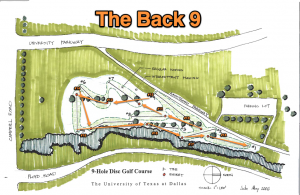Cross-listed as EMAC/ATEC 6372: “Approaches to Emergent Media and Communication: Cognition, Culture, and Communication” and ACN 6V81: “Special Topics: Cognition, Culture, and Communication.”
Course Updates
For course updates, check out the blog (HTML / RSS) or Twitter (using the hashtag #UTDCCC). Time-sensitive updates will be sent via email to your official university address.
Course Description
Who should take this course
Media theorists interested in how media impacts human minds and culture. Communication scholars and cognitive scientists interested in the empirical, qualitative study of the human mind in its social, cultural, communicative, and technological contexts.
HCI,
UI, and
UX and Emerging Media experts, engineers, and designers who want to better study and understand how communicative systems and cultural artifacts interface with human cognition and experience.
This course covers radical theories of and methodological approaches to three core aspects of the study of the human: cognition, culture, and communication. We will look at challenges to common assumptions about these three aspects and work to build an alternative understanding of them relevant to work in emerging media and communications and human-computer interaction. More…
Cognition, communication, and culture traditionally mark ontological distinctions as well as disciplinary boundaries. Cognition covers the individual operation of the isolated human mind, and is the domain of psychology (and the associated cognitive sciences). Communication is the interaction of human minds through a medium, and is covered by the eponymous field of study as well as media and information theory. Culture includes the shared knowledge, values, and practices of a larger social group and is the traditional field of anthropology. The humanities cover aspects of culture and communication but are not considered relevant to their “scientific” study. The ideal unification of science would relate these three categories reductively: culture can be reduced to acts of communication, acts of communication can be reduced to the cognitive operation of individual minds… and so on down to the level of physical particles.
We will examine a host of radical challenges to this traditional picture of separate, hierarchically organized ontological categories. We will examine critical and constructive approaches that treat cognition as embodied and enacted, constituted by culture and communication, socially and technologically distributed, extended, and mediated, as well as approaches to culture and communication which recognize them as inherently cognitive activities, rather than the epiphenomenal residue of the operation of individual minds. Rather than individualism and reductionism, we should think of cognition, culture, and communication as mutually co-constituting. We should not study them separately, but instead we should examine cognitive-cultural-communicative (C3) processes and systems. We will look at different theories of the nature of C3 processes and systems as well as qualitative empirical methodologies for their study. Students will apply their understanding of C3 systems to emerging media systems in particular.
Theories and Methods
This course uses several theoretical perspectives and methodological frameworks, and many of them alternatives to the orthodox approaches in cognitive science, psychology, communication, anthropology, and sociology. Here are the main ones you will become familiar with in the course:
In general, methodological discussions in this course will focus on various forms of qualitative research method.
Required Texts
Textbooks are available at Off Campus Books
Addition required readings will be made available via course website.
Further Suggested Readings
- Bruno Latour, We Have Never Been Modern
- Taylor & Lindlof, Qualitative Communication Research Methods
- Donald Norman, The Psychology of Everyday Things / The Design of Everday Things
Assignments
- Seminar attendance and participation / discussion questions
- Weekly assignments and activities
- Research proposal – proposal for empirical research on a C3 system, based on theories and methods learned in the course.
- Choose one:
- Theoretical paper – interpretation of C3 system using theoretical concepts from the course (connecting w/ existing empirical studies)
- Video Ethnography project – Use cognitive ethnography and other methods from the course to study a C3 system in the wild.
Course Schedule
Click to see readings and assignments.
- 1/15 – Introduction
- 1/22 – Traditions in Psychology and Cognitive Science
- 1/29 – Situated Cognition I – The Problem of Cognitive Theory in Practice
- 2/5 – Situated Cognition II – Putting Practice in Theory
- 2/12 – Distributed Cognition I – Ship Navigation as a Cognitive Process
- 2/19 – Distributed Cognition II – The Social Organization of Cognition
- 2/26 – Distributed Cognition III – Learning in DCog Systems
- 3/5 – Distributed Cognition IV – Cognition as a Cultural Practice + Cognitive Ethnography
3/10-3/16 – Spring Break!
- 3/19 – Cultural Psychology I – A Tale of Two Psychologies
- 3/26 – Cultural Psychology II – Keeping Culture in Mind
- 4/2 – Cultural Psychology III – Researching Cultural-Historical Activity Systems
- 4/9 – Actor-Network-Theory I – Following Controversies
- 4/16 – Actor-Network-Theory II – Tracing Associations, Reassembling Collectives
- 4/23 – Productive Encounters
- 4/30 – Presentations & Wrap-Up

